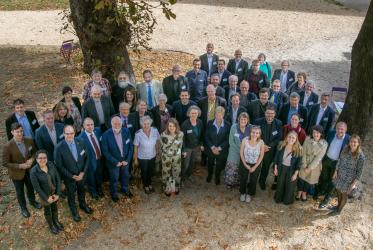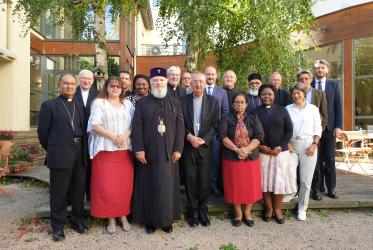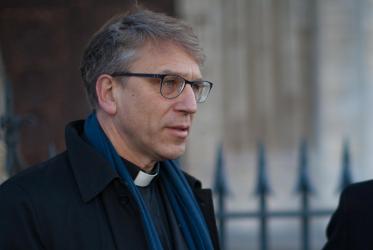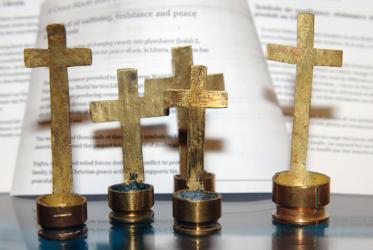Displaying 1 - 20 of 20
07 October 2019
WCC/UN conference calls for coordinated action on refugee crisis
20 January 2016
One refugee’s story: from Syria to France
07 January 2016
WCC general secretary shares signs of hope on the eve of COP21
29 November 2015
Common prayer in Geneva responds to acts of violence
16 November 2015
WCC strongly condemned terror attacks
14 November 2015
WCC urges responsibility for and support to the refugees in Europe
04 September 2015
New departure in Taizé towards an ecumenism of solidarity
20 August 2015
WCC Executive Committee speaks out on migrant crises
12 June 2015
The new Arms Trade Treaty: a life-saving gift this Christmas
19 December 2014











